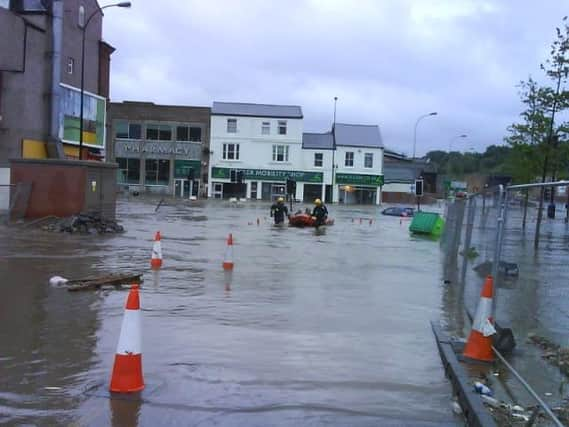Environment: Knowing the price of everything and the value of nothing


Food is grown then bought and sold, minerals are extracted and then used to make something which is then sold. So how we manage economic activities has a profound effect on the environment.
In simple societies economics is about exchange: some people grow food and exchange it for fuel, while others cut down trees or dig up coal and exchange it for food.
Advertisement
Hide AdAdvertisement
Hide AdThe invention of money put a price on these commodities and made it possible to develop much more sophisticated societies but it also meant that understanding economics became more difficult. 19th century economists decided that a scientific approach was needed, and they started to try and find mathematical rules and equations that could predict exactly how economies worked.
Such ideas are still very influential today. So, for example, current government policies are based on keeping taxes low because their mathematical models predict that this will make the economy stronger.
They persist in this belief even when evidence shows that the models do not predict what happens, such as in the 2008 financial crisis.
In the United Kingdom and the United States the dominant economic theory is neoliberalism. Neoliberalism emerged in the 1950s as a reaction to the highly planned and repressive economics of the Communist bloc by emphasising the right of every individual to have choice over what they do with their money, hence the importance of low taxes and minimal government regulation.
Advertisement
Hide AdAdvertisement
Hide AdAll economic decisions should be based on what “the market” says should happen, so if you can make a profit by chopping down a forest and selling it, that is the right thing to do.
These mathematical models always require assumptions about what to include and what to leave out. One assumption economists make is about what you put a price on and what you do not.
Economists talk about “externalities”, which are resources free to everyone and which they can ignore in models. So, for example, air is an externality: industrial activity can draw in clean air and pump out dirty, poisonous air and this does not have to be calculated as part of the price of what the industry does.
As western industrial activity developed, the problems caused by such pollution started to be recognised, and governments started to create laws which regulated pollution.
Advertisement
Hide AdAdvertisement
Hide AdHowever, because neoliberal economics emphasises the importance of minimal regulation, Conservative governments always strongly resist restrictions on economic activity, as is seen in the reluctance to act against private water companies discharging untreated sewage.
The belief in the market means that nothing has any value until it becomes part of the market.
One factor contributing significantly to the disastrous Sheffield flood of 2007 (and others in the Calder Valley) was the removal of trees on the moors above the city decades ago to turn this into a landscape suitable for grouse shooting. After all, tree-covered hills have no value unless you can use them to make money.
Another major problem with relying on the market is that it means that decisions are made on what makes money in the short term.
Advertisement
Hide AdAdvertisement
Hide AdBurning fossil fuels and chopping down the Amazon rainforest gives short-term profits but causes problems in the longer term.
By 2123 many essential commodities may be incredibly expensive as a result of climate change and the loss of biodiversity, but confirming that market economics works will be little consolation for people alive at that time.
When economic models do estimate long-term costs they assume that costs as time goes by costs will decrease.
The question here is by how much, and for environmental issues the decision is largely ethical: what is the value of a healthy environment to future generations? Neoliberal economists discount the future heavily, typically quoting a figure of about 4% each year, whereas the UK Government’s 2007 Stern Review on the impact of climate change said that a figure of about 1% was more ethical to protect future generations.
Advertisement
Hide AdAdvertisement
Hide AdThe combination of ignoring externalities and discounting future costs heavily creates an unsustainable economic system that is driving us towards environmental collapse.
In recent years scientists have tried to play neoliberal economists at their own game by putting a value on what the natural environment does to contribute to the environment.
They have identified that the environment performs four essential “ecosystem services”: provisioning (supplying food and water), regulating (affecting climate and water flows, as with moorland trees), cultural (recreational and spiritual benefits) and supporting (regenerating soil, photosynthesis, and so on).
If we were to develop industries to do all of these things, it has been estimated that it would cost about $125 trillion every year, which is nearly twice as much as all current economic activity in the entire world.
Advertisement
Hide AdAdvertisement
Hide AdTo conclude, economics is not a science: it is about politics. How economic systems work depends on the values that decision-makers hold.
There are many ways to run an economic system to give people a good quality of life within a healthy environment. Unfortunately, our current neoliberal economic system is designed to do exactly the opposite.